Jotun Libya: Projects and outlook for construction and real-estate sector
Abdel Menem Abdel Aziz, Chairman of JOTUN (Libya)
JOTUN paints are famous throughout Libya and other parts of the world for their very high quality. “The service JOTUN provides makes us absolutely exceptional in our relationship with project owners. We see ourselves as their partners when it comes to paints or protection against corrosion. We are with them throughout the project; from the beginning until the end,” explains Mr. Aziz. The company is currently building a factory near the town of Zuwara, some 90km west of Tripoli. It is a factory that would deploy the latest technology JOTUN has deployed anywhere else.
Interview with Abdel Menem Abdel Aziz, Chairman of JOTUN (Libya)
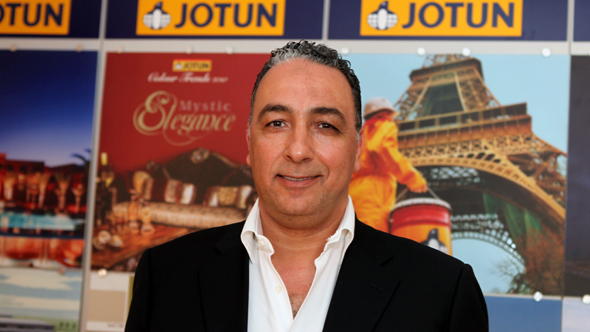
JOTUN is a private sector company. What should foreigners know about Libya, especially when it comes to doing business in this country?
We are dealing with business day-in day-out as usual, life goes on, projects are being performed and local companies are fulfilling their (contractual) obligations related to all projects they are involved in. However, foreign companies still feel that the security level in Libya has not yet reached the point which would allow them to return back to Libya. But for us who work here, we don’t see those obstacles. Of course, the current level of security is not perhaps what we would like it to be but it is not stopping us from getting on with our projects. I would say it is safe enough and the media is making more of it than what it really is.
You are meeting on a daily basis with foreigners and foreign investors who are now on the ground in Libya. Is the security situation really threatening the normal affairs of doing business, is there any risk of being kidnapped? How much is the security situation exaggerated?
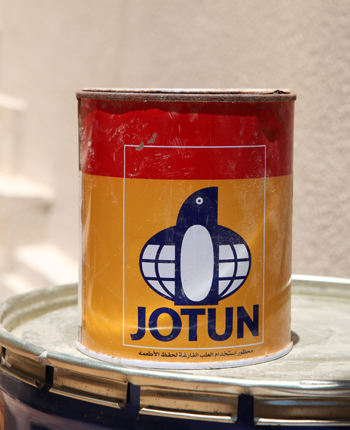
It is well over-exaggerated. Whenever I’m outside Libya and I hear some news items regarding Libya, I take the phone and call my friends and family and I ask them if it is true and of course it is well over-exaggerated. I remember one small incident where there were firecrackers going off in the
downtown area of Tripoli, where many embassies are located. I kept flicking through the TV channels and the headlines were saying An explosion in front of the Greek embassy, An explosion in front of the Algerian embassy and An explosion in front of the Saudi embassy ― only because they are right next to each other and there was someone doing fireworks in that area. It was taken out of proportion as if the whole nation had been on fire. The situation is far better than the media portray it.
The Economist is predicting growth of about 19% in 2013, which is one of the highest rates in the world in terms of the GDP growth. In your opinion, do you see this growth happening in all sectors of Libyan economy? Is there optimism about the future? Where is the country heading?
Most of the growth is happening outside of the oil and gas sector, which is of course very encouraging. Definitely, I have a very positive view on where Libya is going; the future seems great for Libya.
Do you feel it in your operations?
Definitely, our sales returned to pre-revolution levels immediately after the revolution ended. This year we have so far noticed increases on the same level as we used to have prior to the revolution. Thus as far as our business is concerned, JOTUN is back on the track.
Libyan Herald recently reported that there will be projects worth of US $140 billion over the next years. The figure includes among others the housing projects. What do you think could prevent these projects from being realized? What could halt or reduce the growth of the country?
We started working in an environment where the government didn’t give us any support. There was hardly any support for the private sector at all. Starting with funding – we had none whatsoever; all banks were reluctant to help us and assist us so we had to do it ourselves. We had to rely on our families and friends and gradually build everything up to where we are today, which is unorthodox worldwide.
Politicians who are running the current interim government find it difficult to take decisions; they would rather see the situation move on without big decisions being made that would leave a mark on future developments. Therefore most of them are reluctant to take decisions and this is what could slow the progress of Libya. Otherwise, the budget is there, the money is there, the projects are needed ― the power and the need is there and thus nothing should stop Libya from going ahead with these projects.
What is your take and outlook on the construction and real-estate sector in Libya? That includes housing, infrastructure projects etc.
We have had almost a freeze on the development of Libyan housing sector and infrastructure for the last 35 years or so. We have a lot to catch up with. There is an enormous task of construction ― be it in relation to the housing or infrastructure in Libya. Therefore I would say that the number you have just stated (US $140 billion) is a bit conservative. We have a lot of clusters to build, a lot of infrastructure to build. The shortage of housing is enormous and it has to be covered, as well as the industrial clusters.
There exists a valuable demand for these projects but, on the other side, is there an adequate supply? Is there enough of experienced contractors who are able to carry out these projects?
We definitely need to work with the rest of the world. We need an assistance on technological issues, we need know-how, so we do need international companies to come back and assist Libya in its transition period and help us in the execution of these major projects.
We have previously touched upon a very important subject ― the vision for Libya. Where should Libya go from here? What is your vision for Libya?
At first, we need a vision because going on randomly gets us nowhere. Everybody is trying to do something without a vision and strategy; it is all random work. At this stage, all Libyans should indulge themselves in a national dialogue to form such a vision. We should kick it around between us to establish a vision that all Libyans would agree upon ― with that in mind, we can start working on strategies and policies to implement these strategies; to allocate the right budgets and build the right clusters, to ensure a success of our efforts in reaching that vision.
JOTUN is one of the few successful private sector companies in Libya. What is your secret to success? How come you managed to prevail in such a harsh environment that was in place for long years prior to and during the revolution?
I should not really be taking the credit myself; it is the whole team. We have very dynamic, young, enthusiastic team of Libyans, we are 100% Libyans in the firm. We have together made this success. The need to do things properly with the right management structure, the right approach with the right working environment and the right incentives for everyone have kept us all as one family and I think it is the team that should be credited for where we are today ― rather than myself.
When it comes to day-to-day operations, what have you done differently than the others?
We started working in an environment where the government didn’t give us any support. There was hardly any support for the private sector at all. Starting with funding – we had none whatsoever; all banks were reluctant to help us and assist us so we had to do it ourselves. We had to rely on our families and friends and gradually build everything up to where we are today, which is unorthodox worldwide. Unfortunately, in Libya we had many obstacles from the government who was not giving us either import licenses on time when they were a necessity or the infrastructure was not in place.
Various governmental bodies were 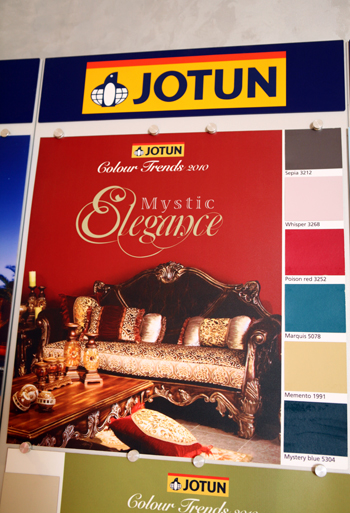 more hassling us and trying to slow us down rather than encouraging and supporting us. We had no one to turn to for help during the times of the previous government in Libya. All these obstacles were our challenges and we had to work round the clock to overcome them. By no means it was not an easy ride at all.
more hassling us and trying to slow us down rather than encouraging and supporting us. We had no one to turn to for help during the times of the previous government in Libya. All these obstacles were our challenges and we had to work round the clock to overcome them. By no means it was not an easy ride at all.
Hopefully now that Gaddafi’s regime is gone, we have a more democratic system where we can put pressure on the government to give a big hand to the private sector. We are at least at the moment being listened to ― unlike during Gaddafi when our heads would have perhaps been chopped off. Still, it is a process, Libya is a new country, we have to walk many miles before we get where we want, nevertheless we believe in a new Libya and in the new democracy that we have. The dialogue we are having at the moment with officials is fruitful and hopefully we will be able to reach a far more stable relationship between the private sector and the government of Libya.
What are the main points that you are lobbying for? What are the specific policies that you demand from the government to be implemented in the short- and long-term that would facilitate the private sector operations?
First of all, the old banking transactions and restriction we have until today ― we would like to see a lot of that eased up and make it easier for the business community to benefit from these banking services rather than being an obstacle.
Second point would be related to the speed of establishing industrial zones in the country. So far it remains difficult for many manufacturers to find a plot of land where they can build on since the legislature concerning the industrial zones has not been finalized yet. People cannot wait, they want to build their factories today, not tomorrow. The government has to speed up on that front.
Also, the government has to invest in infrastructure, especially in the areas of industrial clusters. If they are to encourage the business community to get out there and build more factories, create new jobs, contribute to the economy, the government has to help in getting those obstacles out of the way. Of course there are also other issues that require attention from the government.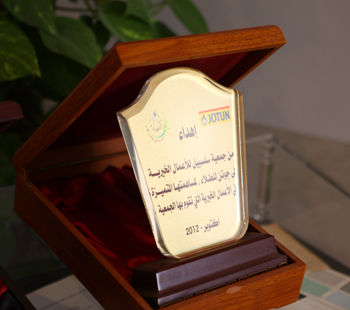
The Ministry of Industry is aware of the necessity of the industrial zones, they are trying to establish them. Yet what is the reality on the ground?
In reality it is still slow. I pursued this issue before the revolution, I went to what was known as the Board of Industrial Zones and there were people who were supposed to create industrial zones; they had the authority to do so but they had no power to implement that authority. It was getting us
nowhere. I took it further to the Ministry of Economics to give us a license to build the factory. When they gave us the license we needed a plot of land which we could buy or lease ― otherwise my foreign partners, whom it had taken me a while to convince to come and join me in establishing such a factory in Libya, which would create new jobs and help the economy, while they were assessing an option of opening such a factory in Tunisia, which had better policies and rules and could provide them with a plot of land in days ―, so I asked the Minister to help me to prevent losing such a project and of course tried very hard and called the Minister of Industry among others. I came to see him a week later about what happened and he said: “Sorry, it is a big chaos. No one can do anything in this chaos,” and it was the Minister himself saying this.
The problem has not eased up since then, it still is a mess but at least we can take it higher up and discuss it with various government bodies until we find a solution. I’m sure that the Minister of Industry is doing his best but the business community cannot wait, we need quick answers and quick solutions.
Is it a question of the laws ― that Libya is still living under Gaddafi’s laws and that new laws are taking time to be implemented?
We hardly had any institutions during Gaddafi. We are now building them and it takes quite a time to do so. It was a big chaos, as the Minister himself said then and his statement was indeed true. There was a lack of institutions, technocrats and a lack of a system which everyone would follow ― it didn’t exist. It is very difficult now to get everything in place in such a short span of time ― since the end of revolution. 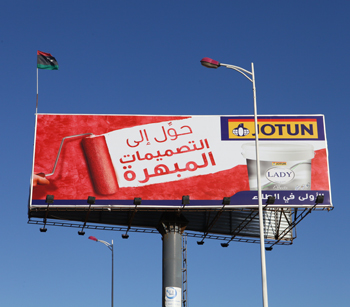
We have to double our efforts and this is why we are asking the Government; we understand we have to work around the clock. It is time for building and we have to do double shifts if there is a need.
In terms of the return on investment in construction projects, if a foreign company decides to invest here and build a project, what are the expected returns on investments? Are they higher than in other countries?
They would be higher. I think it would be safe to safe at least double those figures that you might get in neighbouring Europe.
What about the challenges the foreign contractors would be facing?
As I said earlier, we as a business community are hoping that there will be changes, especially with regards to the banking structure, where the banks and the private sector would be working hand-in-hand with each other ― unlike at present.
Previously according to the investment law, foreign companies could only take up to 50% of the project’s capital in a form of loans from Libya, the rest had to be secured from outside of Libyan borders. The National Congress has recently passed a law that will stop any corporate loans that run with the conventional interest as of the beginning of 2015. Thus I’m not sure how the new changes will work out.
How do you personally view this law that aims to put a ban on interest? Libya is only the third country in the world to adopt such a law, after Sudan and Iran.
Well, it does not have to do with law as such, it is about the mechanism. It has been enforced prematurely, so it is causing a lot of problems at present. 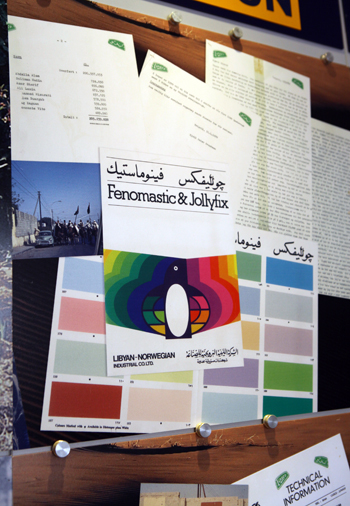 However, an alternative should have been found before the actual abolishment of the previous mechanism. It has left a vacuum and we don’t have a new solution in place that is working today, and then the old system makes everything in suspense and that adds to the problem. It is a big puzzle and I’m not sure how it would be solved.
However, an alternative should have been found before the actual abolishment of the previous mechanism. It has left a vacuum and we don’t have a new solution in place that is working today, and then the old system makes everything in suspense and that adds to the problem. It is a big puzzle and I’m not sure how it would be solved.
Let’s talk about JOTUN itself. What makes JOTUN paints better than those of your closest competitors?
We care. We have the penguin as our logo and we are loyal, we care. Our products have a very high quality and our R&D department is one of our most valued departments, where we invest a lot of money. The R&D department keeps our quality and technological edge ahead of everyone else.
We also provide a very good service. We have a good after-sales service, be it to the consumers at home or the big projects owners. We deliver the goods to the door or at the project site, we provide them with an assistance from our engineers free of charge, we assist them throughout the work they do and we take back opened cans at the end of the project. We advise them on different specs and write specs for the projects if needed ― all free of charge.
The service JOTUN provides makes us absolutely exceptional in our relationship with project owners. We see ourselves as their partners when it comes to paints or protection against corrosion. We are with them throughout the project; from the beginning until the end. Therefore, whoever is running the project, when he comes to painting he has got JOTUN as his partner. He can rely on us to solve that part of the project, we will take care of it.
The paints sector in Libya is worth about 100 million Libyan dinars. JOTUN made a record growth in April and May 2013. What is the outlook for the sector? What are the growth rates we are talking about?
We care. We have the penguin as our logo and we are loyal, we care. Our products have a very high quality and our R&D department is one of our most valued departments, where we invest a lot of money. The R&D department keeps our quality and technological edge ahead of everyone else.
JOTUN is making about 20% growth year-on-year. As a nation, of course the market is expanding and, as there is more ongoing construction, the demand is higher, year-on-year. We believe we have the No 1 position in the Libyan market.
How much of the market does JOTUN represent? What is your market share?
We have just under a third of the market as for the households. We have a higher figure for the industrial projects. JOTUN is the No 1 in the market.
In terms of your investment projects, you are going to build a new factory that will produce 15 million litres of paints per year in the initial stage.
We have a state-of-the-art new factory being built near the town of Zuwara, some 90km west of Tripoli. It is a factory that would deploy the latest technology JOTUN has deployed anywhere else. We would have a fully recycled system, so there will be no emissions to the environment whatsoever; everything is recycled in the factory. The factory would employ some 150 people, mostly locals from the region, and perhaps below 5% of employees would be expats.
The reason why we have housed the factory in that area is because of its proximity to the neighbouring countries of Tunisia and Algeria, to which this factory is intended to export as well as Libya.
We are making here an investment of about 45 million Libyan dinars and that over the years could be doubled ― the capacity plus the investment itself.
So the first stage is to produce 15 million litres of paints and the second stage would be at least 30 million litres. Currently if you have 30% market share and you have around 8 million litres, that means the size of the market is about 24 million litres of paints per year.
Approximately.
Lastly, how do you contribute to the society? Norway is originally known for their corporate social responsibility and high environmental standards; however this issue is new to Libya, many companies are not used to CSR practices.
I’m very glad you mentioned this topic. We do pride ourselves in giving something back to the community we live in and in which we prosper. We have done many projects of the kind, including planting of trees at the western entrance to Tripoli. We did that jointly with the Board of Environment of Libya, which is almost equivalent to the Ministry of Environment of Libya. We joined forces with them; they were the leaders and we were the sponsors of this initiative. If you enter Tripoli from the western side, you will see a green area with trees on both sides of the road ― that was a JOTUN-sponsored program.
We as JOTUN members are also very proud as during the revolution JOTUN was very active and helpful. All our members were active in various parts of Libya. The money we had in our branch in Benghazi was all exhausted on helping fellow Libyans in this stressed part of Libya. We ensured throughout that period that all employees got fully paid even though we were not working.
JOTUN also helped in many sports events and it continues to do so.
Do companies follow your example in CSR? Is there an interest?
Of course. At least the foreign companies in Libya try to do something, everyone wants to have a good image. But there are also some companies that just pay for the lip services rather than doing something serious.
Is there anything you would like to add?
I would really like to raise the flag to all those foreign companies that would like to come to Libya or that already have their projects here. Libya is back to business, up and running, and it is not as bad as media portray it. It is quite safe to conduct business in Libya, it is quite safe to move around Libya, and it is not as dangerous at all as portrayed.
Would you have any estimate of an investment needed for full reconstruction of all the sectors in Libya?
I fully support the figures stated by Mr. Jibril of US $400 billion over the next 5 years. If we are to be a competitive nation and if we are to find our place on the peninsula, we will need to make such an investment over the next few years.
Of course such amount cannot be retrieved from oil only.
Having a more liberal economy that would encourage foreign investment ― I’m one of the supporters of the foreign direct investment that would accelerate Libyan market.